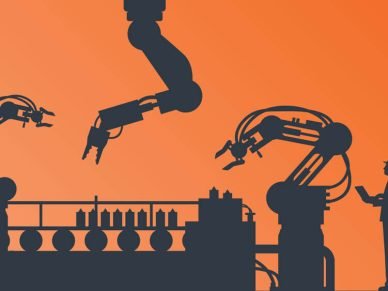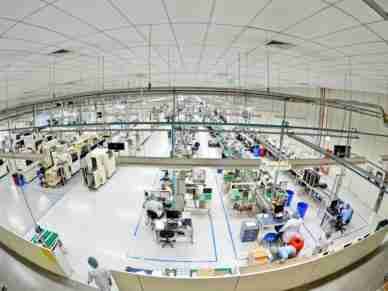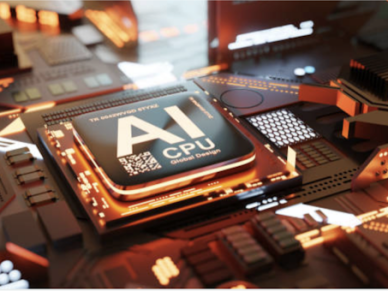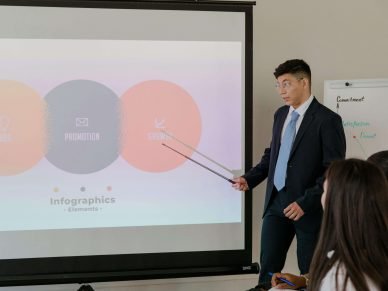We can’t ignore progress. See what Silicon Valley thinks needs to happen for the U.S. to stay relevant in the artificial intelligence race.
 From Silicon Valley’s perspective, Brexit, President Trump, and populist revolts around the world are incongruous to what is really going on. Large numbers of workers are getting left behind in the wake of automation and artificial intelligence and most governments are not nearly nimble enough to react.
From Silicon Valley’s perspective, Brexit, President Trump, and populist revolts around the world are incongruous to what is really going on. Large numbers of workers are getting left behind in the wake of automation and artificial intelligence and most governments are not nearly nimble enough to react.
Most people have a skewed perception of their role in a situation, as well as others’ motives. The majority will happily take credit for positive outcomes, while often feeling victimized by negative ones. There’s a push to return to the days where people weren’t feeling choked economically.
In many cases, anger is directed at trade, immigrants, and things foreign to the generational lifestyle Western civilizations have grown accustomed to. This is mostly misdirected.
Current conversations in technological fields are concerned with how the future will be driven by advancements in artificial intelligence. There is an air of excitement around all the new capabilities to be gained with simultaneously fearful undertones concerned with the inevitable disruption of the economy and political systems.
Sure, Silicon Valley operates in a bubble. But considering the growing number of Americans working in tech, we are the tip of the future-forward facing spear.
Digitization and Doubt
Earlier this year, U.S. Treasury Secretary Steve Mnuchin, said, “”I think that is so far in the future—in terms of artificial intelligence taking over American jobs—I think we’re, like, so far away from that [50 to 100 years], that it is not even on my radar screen.” Mnuchin added that he did not understand tech company valuations in a way that implied that he regarded them as “excessive”.
Could the top economic advisor to the President of the United States be wrong about artificial intelligence? Recent analysis by Price Waterhouse Cooper (PWC) states that up to 40 percent of today’s jobs may be replaced by automation by the 2030s. Other estimates suggest that this effect could take place even sooner and be more profound.
The world’s first industrial revolution took 80 years. It brought us steam power and mechanical production equipment. The second industrial revolution was truncated by the start of World War I, but lasted 54 years. It welcomed electricity, division of labor, and mass production.
Digitization kicked off during the 1970s, which brought electronics, automated production, and the internet. Now we have arguably embarked 10 years into the third industrial revolution. It could merely take another 10 to 15 years to complete the transformation and begin the ascend toward super intelligence.
Meanwhile, we already feel the effects of digital-physical convergence, external neural networks (a.k.a. A.I.), and the beginnings of cyber-physical systems.
President Trump made campaign promises and cranked up the pageantry surrounding his executive order targeting the 66,000 people still involved in coal mining. He ignored the order of magnitude that’s involved in clean energy.
According to the World Economic Forum, as of 2016, solar and wind had become cheaper energy sources than fossil fuels. This is just one of numerous examples where government administration lags when it comes to the rapid transformation of our future economy.
From Mind to Manufactured Moments
 This revolution is happening within the context of one generation and our economic systems are being stretched to the limit. While Universal Basic Income is certainly gaining mind-share, it would only serve as an economic bridge until the majority of the population becomes economically irrelevant.
This revolution is happening within the context of one generation and our economic systems are being stretched to the limit. While Universal Basic Income is certainly gaining mind-share, it would only serve as an economic bridge until the majority of the population becomes economically irrelevant.
It could even be too late for most of today’s unskilled laborers to make the leap. Generation Z outnumbers the baby boomers, and has an unique chance to live in an entirely new future.
To make that happen, we must drastically modernize our education system—that was designed during the previous industrial revolution a century ago—and intercept the technological trajectory—limited only by government scale.
Dr. Peter H. Diamandis, Co-founder and Executive Chairman of Singularity University, posed an intriguing line of questioning, specifically what attributes will be most critical for our children to learn to become successful in their adult life? What’s most important for educating our children today?
If information is readily available in the not-so-distant future, what should we study? How do we stay more valuable to society than machines and algorithms? Surely, it’s mainly becoming more human, especially when it comes to our passions, creativity, emotions, and communication, while acquiring technological skills needed to cultivate and operate the tools of the future.
Limitless Opportunities
Communication is a muscle that requires exercise. On other hand, going deeper than the surface in computer literacy is a profession that requires solitude and focus. It is not common to have both personalities and skill sets present in one person.
Soon, deep computer literacy and programming education will be just as important—if not more so—to students than basic chemistry, physics, and biology taught today. While communication and interpersonal relationship skills will be critical to anyone’s success as they’ll need to sell their ideas clearly.
An immense part of the population is entirely consumed with repetitive jobs automation can, and will, take away. This painful transition will allow for more free time and limitless opportunities to pursue our passions. Entrepreneurship, experimentation, and persistence will become increasingly more relevant not only to the “crazy ones” but to all.
March of Technology
Ultimately, what will separate humanity from the machines is being more humane.
Machines must be programmed with the overhead of human emotions, ethics, compassion, and creativity. Perhaps they will be one day, but those aren’t yet necessary components of productivity. This focus is what will forever make us the machine’s masters and them our tools.
The march of technology advancement is apolitical and is about to turn into a sprint.
No matter your individual politics, next steps will demand that your elected representatives look to the future and not the long-gone past.
 Vitaly M. Golomb is a Silicon Valley-based Venture Capitalist and the author of Accelerated Startup (2017) available on Kindle, iBooks, and hard copy.
Vitaly M. Golomb is a Silicon Valley-based Venture Capitalist and the author of Accelerated Startup (2017) available on Kindle, iBooks, and hard copy.















